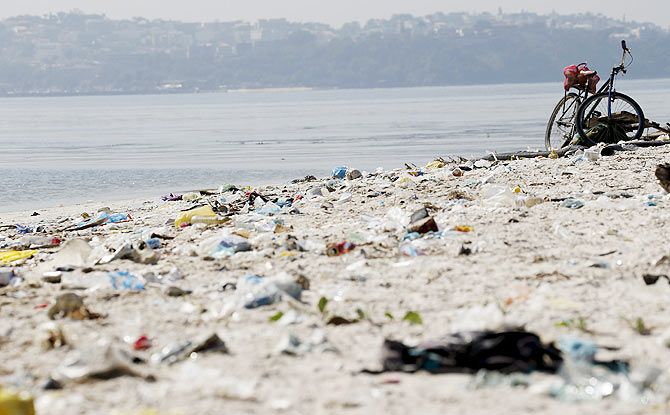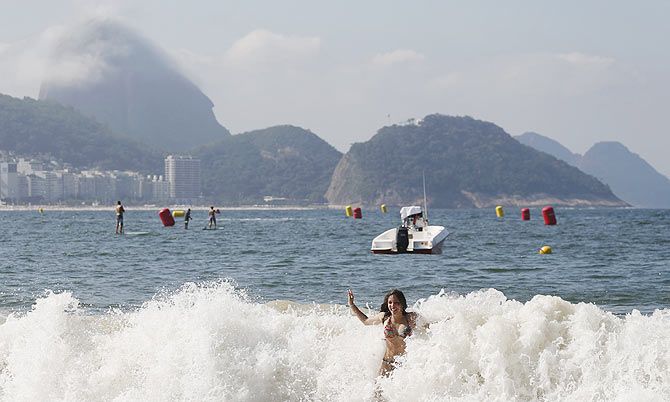
Sailors and rowers were not worried about getting sick during the Rio Olympics next year despite reports that waters to be used for events have pollution levels equivalent to raw sewage, competitors said on Thursday.
Tests commissioned by the Associated Press found levels of disease-causing viruses as much as 1.7 million times the level that would be considered hazardous on a Southern California beach.
The International Olympic Committee reacted by reiterating that the health and welfare of athletes was its top priority. The IOC said it was in constant talks with organisers about how to ensure the waters were clean enough for competition.
"For example, we know that proactive measures around the Guanabara Bay - such as closing landfills, reducing industrial pollution, increasing water treatment works, and reducing floating garbage - are being taken and implemented by the local authorities," the IOC said in a statement.
"We have had reassurances from the WHO (World Health Organization) and others that there is no significant risk to athlete health."
Sailors and rowers familiar with the Olympic waters concurred and said they were not concerned.
“Brazilians haven't caught anything," Olympic gold medalist Marcelo Ferreira said.
"I have never had any health problems sailing in the Guanabara Bay."
"The problem with the Guanabara Bay has been dragging on for 30 years, since I was a child. There's no point in going on about the quality of the water, the Olympics are going to be in Rio no matter what and so this subject is dead for me."
A representative for British sailors currently in Rio for a Test event said the UK competitors were also not too worried.

American Paige Railey, winner of a gold medal in the women's laser radial in last week's Pan American Games, said she had no fears.
"We've spent a lot of time there the past few years and haven't had any issues with the water," said Railey.
"Honestly, Rio has been doing a great job with the water, we haven't had any issues. I think it's fine. I even swim in it, it doesn't bug me at all."
The waters along Rio's Atlantic coast have been polluted for years and successive governments have spent hundreds of millions of dollars on supposed clean-ups to little effect.
Parts of the bay's coastline are littered with garbage such as tires, sofas, old televisions and plastic detritus.
Biologists last year said rivers leading into the bay contained a superbacteria resistant to antibiotics that cure urinary, gastroinTestinal and pulmonary infections.
When Rio de Janeiro bid to host the 2016 Olympic Games, the city trumpeted the clean up and said it would cut the amount of raw sewage flowing into the bay by 80 percent.
But it has since admitted it is unlikely to meet that target, something Mayor Eduardo Paes called a "lost opportunity" for the city.
Earlier this year, the Rio de Janeiro state government said the amount of sewage treated before reaching the bay had risen to 49 percent from 17 percent.
The state environment secretariat on Thursday rejected the study reported by the AP. It guaranteed an acceptable level of water quality in the race lanes, although not at the marina where the boats would set sail.
"By both European and American standards, the quality of the water is appropriate for the events," the secretariat said in a statement.








 © 2025
© 2025